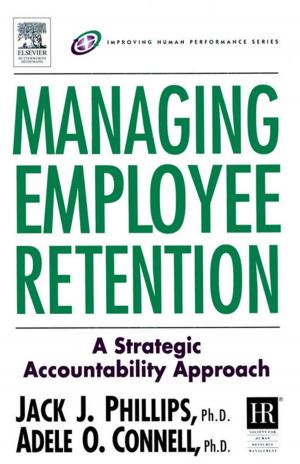Micro-Macro Links and Microfoundations in Sociology
Nonfiction, Social & Cultural Studies, Social Science, Sociology| Author: | ISBN: | 9781317977230 | |
| Publisher: | Taylor and Francis | Publication: | July 16, 2014 |
| Imprint: | Routledge | Language: | English |
| Author: | |
| ISBN: | 9781317977230 |
| Publisher: | Taylor and Francis |
| Publication: | July 16, 2014 |
| Imprint: | Routledge |
| Language: | English |
Micro-Macro Links and Microfoundations in Sociology focuses on two main issues in sociology. Firstly, how macro-conditions can explain macro-outcomes mediated by actor behaviour at the micro-level (micro-macro links). Secondly, how alternative micro-models affect macro-outcomes (microfoundations). The contributions reflect key features of micro-macro modelling in sociology as well as recent progress in this field. The chapters address core features of explanations of social phenomena using micro-macro models, the problem of cooperation, heterogeneity of actors, structural balance, opinion formation, segregation, and problems of micro-macro models that are based on rational choice assumptions. Moreover, the contributions show how different research methods can be applied fruitfully, such as laboratory experiments, equilibrium analysis, and agent-based modelling.
As a result, the book can be a guide for graduate students who want to develop their skills in building micro-macro models. In addition, the book provides specialists of the different substantive research areas with up-to-date new developments in their research area.
This book was originally published as a special issue of Journal of Mathematical Sociology.
Micro-Macro Links and Microfoundations in Sociology focuses on two main issues in sociology. Firstly, how macro-conditions can explain macro-outcomes mediated by actor behaviour at the micro-level (micro-macro links). Secondly, how alternative micro-models affect macro-outcomes (microfoundations). The contributions reflect key features of micro-macro modelling in sociology as well as recent progress in this field. The chapters address core features of explanations of social phenomena using micro-macro models, the problem of cooperation, heterogeneity of actors, structural balance, opinion formation, segregation, and problems of micro-macro models that are based on rational choice assumptions. Moreover, the contributions show how different research methods can be applied fruitfully, such as laboratory experiments, equilibrium analysis, and agent-based modelling.
As a result, the book can be a guide for graduate students who want to develop their skills in building micro-macro models. In addition, the book provides specialists of the different substantive research areas with up-to-date new developments in their research area.
This book was originally published as a special issue of Journal of Mathematical Sociology.















